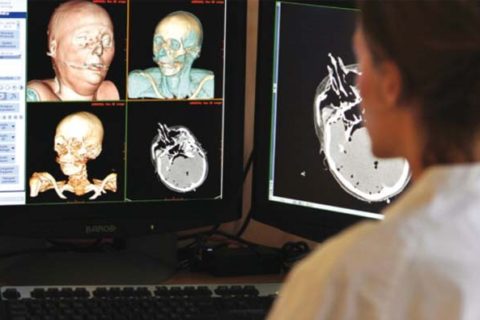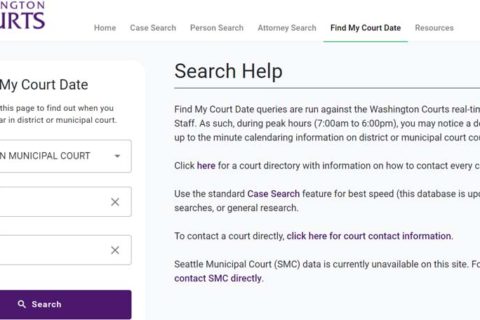When an individual is indicted, they have been officially accused of committing a crime, commonly a felony. In other words, someone who is indicted means to be given formal notice that it’s believed that they committed a crime. Well, the indictment actually contains the basic information informing the individual of the charges against them.
Of course, it is such a scary word, as when someone has been indicted by a grand jury, it sounds like a very serious case. Furthermore, this term refers to a procedure in the legal process that does not actually indicate someone’s guilt or innocence. Let’s find out more information about indictment through our post below!
The Process of Indictment
An indictment is issued by a prosecutor after studying the information from investigators and the information they collect from talking with the individuals involved to determine whether it will be presented to the grand jury.
An indictment is such the first step in the legal process in the way to prove that a crime was committed and that you were the one who committed it. Before the indictment hearing takes place, an individual who encounters a possible indictment does not always have to be arrested.
If they are arrested, they will be informed that the case has been submitted to a grand jury. However, a grand jury probably meets in private and returns a sealed indictment that will be unsealed before an arrest warrant is issued for the person in question.

Here’s sequence of the indictment process:
- After the suspect or defendant is arrested, a grand jury will determine whether or not there is enough evidence that points to the accused.
- Then, the grand jury voted based on the evidence available or presented by the prosecutor.
- The attorney office will then prepare and submit documents on the indictment.
- After that, the suspect of the defendant will be notified of the indictment.
- Within 70 days of filling the indictment, the criminal case will continue.
- All documents and necessary information will be provided to defendants and their counsel.
- The trial will start and an arraignment will take place in court. At the trail the prosecutor may try to prove the defendant guilty. Commonly 12 members of the grand jury should agree for the defendant to be declared guilty.
- The suspect or defendant will have the opportunity to question, provide the evidence, challenge evidence through their counsel and challenge witnesses.
- The suspect or defendant will have to select to plead guilty early in the case based on the evidence.
- By giving proof of the innocence or guilt of the defendant, the process will end as well.
How Does an Indictment Occur?
A prosecutor will take a case in front of a grand jury to get an indictment that is made up of 15 citizens in a state or up to 23 citizens on a federal grand jury. After that, the grand jury meets and listens to the prosecutor who should determine the cause for the indictment to proceed.
Then, the prosecutor will place forth evidence and probably even present witnesses to support an indictment. After that, the grand jury will be able to question the witnesses, even though the suspect and their attorney are not allowed to do so. But, the accused individual is probably allowed to testify on their own behalf at the grand jury hearing.
Certainly, there is not a very high level of proof that is required to determine possible cause for an indictment hearing. Well, this is only the first step in the process and does not decide a person’s guilt or innocence.
Otherwise, an indictment hearing will simply establish whether the case must proceed to trial. Being indicted at all cannot be used against you in a criminal trial. The grand jury will vote once the prosecutor completes arguing the case. If a majority of the jurors vote in a favor of possible cause, a true bill may be returned. It means that the prosecutor will be able to take the case to its next step (arraignment hearing).
What Happens Next After You’re Indicted?
The next step in the process is an arraignment hearing that may take place in front of a felony judge. Of course, the judge will read a detailed list of all of the charges during this arraignment hearing, as well as a list of the maximum penalties for those charges.
In this case, the defendant will be able to submit a plea of not guilty or select to enter into a plea bargain to avoid going to trial. The case will proceed and the judge will set the bond if the plea is not guilty.
The judge will also set a pre-trial date and trial date, ensuring that the defense will get discovery. It means your attorney gets access to any reports that are drawn up by arresting officers, the statements from witnesses for the prosecution and also evidence that the prosecution plans to present at trial.
It is an absolutely serious case, even though being indicted for a felony is not a guilty sentence. It’s very important to have an experienced attorney by your side who knows and understands how to secure the great outcome possible from the indictment hearing all the way through the actual trial.
In some cases, your defence attorney will be able to work out a plea deal where it is more likely if the prosecutor is great to work with you to solve the issue. With a plea deal, you cannot submit a contest or be guilty of charges against you. Then, you will be given a sentence which is less than that which would have been awarded had you been convicted at trial.
Your attorney may bring this to you if a plea deal is on the table from the prosecution and the decision to accept is totally yours. You may also have the right to appear if you’re convicted of the crime or found guilty at trial. Certainly, it can result in the case being re-examined, your conviction being overturned (in some cases) and new evidence being introduced.

A bookworm and researcher especially related to law and citizenship education. I spend time every day in front of the internet and the campus library.





